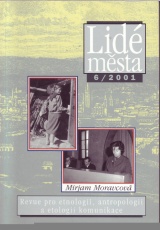Perspektivy historické antropologie a sociologie
DOI:
https://doi.org/10.14712/12128112.4135Abstrakt
The move toward the anthropological and social dimension of historical inquiry was fostered especially by the influence of the Annales paradigm. Traian Stoianovich claimed that the Annales school emphasized serial, functional, and structural approaches to understanding society as a total, integrated organism. Fernand Braudel, the central figure of the Annales school in the decades after World War II, laid out his historical model in his work on the Mediterranean world. He posited three levels of analysis that corresponded to three different units of time: the structure or langue durée, dominated by the geographical milieu; the conjoncture or medium term, oriented toward social life; and the fleeting event, which included politics and all that concerned the individual. Fourth-generation Annales historians such as Roger Chartier and Jacques Revel indicated mentalités as a primary determinant of historical reality. At the end of the 1950s and early in the 1960s, a group of younger Marxist historians started publishing studies on history from below. In recent years, the most visible anthropologist in cultural historical work has been Clifford Geertz whose interpretative strategy involves an attempt to read the meaning inscribed by contemporaries. Marshall Sahlins in his own version of historical anthropology tried to rethink the dialectic relationship between structure and event. In 1961, E. H. Carr announced that the more sociological history becomes, and the more historical sociology becomes, the better for both. During the nineteenth century the founders of sociology such as Comte, Tocqueville, Marx, Durkheim, and Weber devoted a special attention to the historical processes and vast effects of the European industrial and democratic revolutions. However, the rise of the antihistoricism of structural functionalism caused the partial eclipse of historical sociology. In the last decades, a de-Parsonizing of our understanding of Webers ideas and a certain revival of Durkheimian or Marxian historical sociology as alternatives enabled that historical sociology has become one of the most important subfields of sociology, and perhaps the fastest growing.
Stahování
Publikováno
Jak citovat
Číslo
Sekce
Licence

Tato práce je licencována pod Mezinárodní licencí Creative Commons Attribution-NonCommercial-NoDerivatives 4.0.


